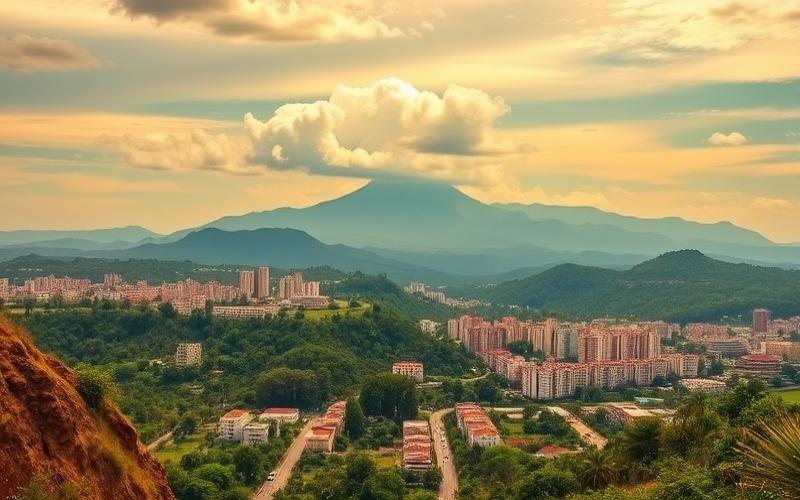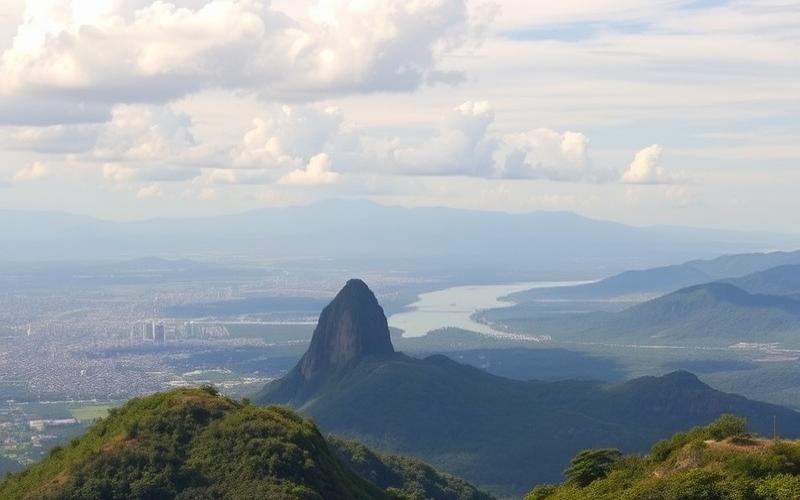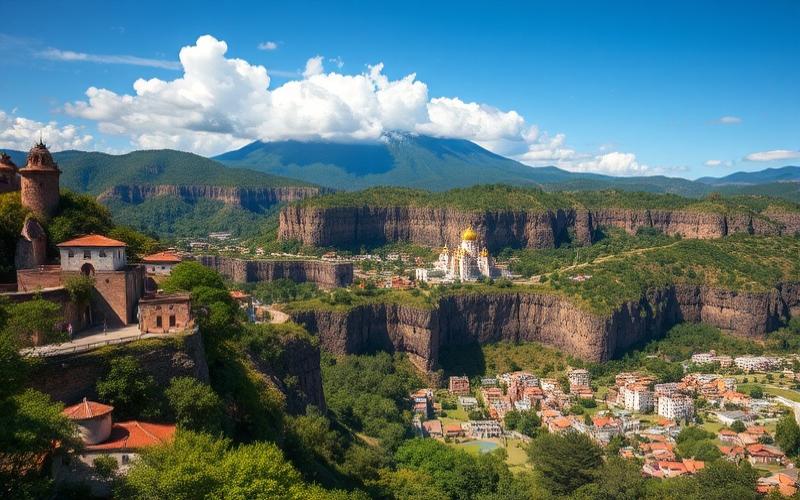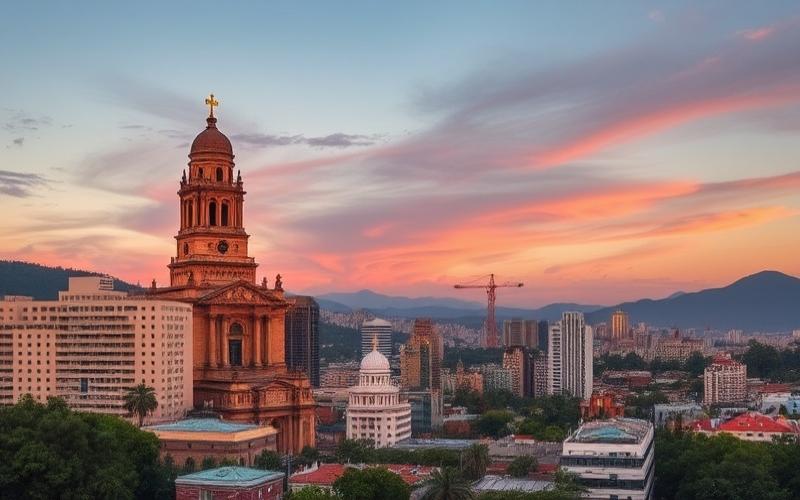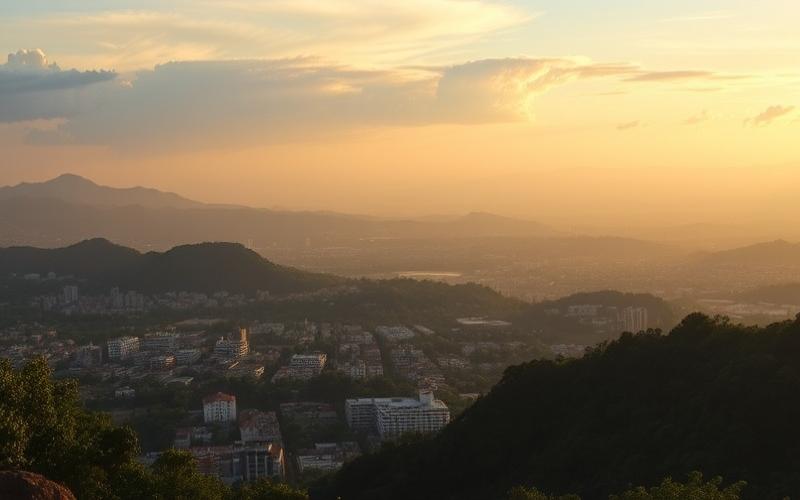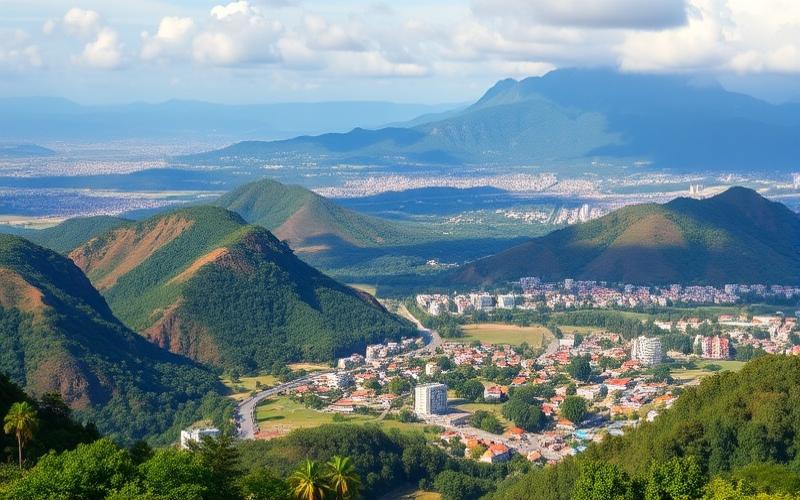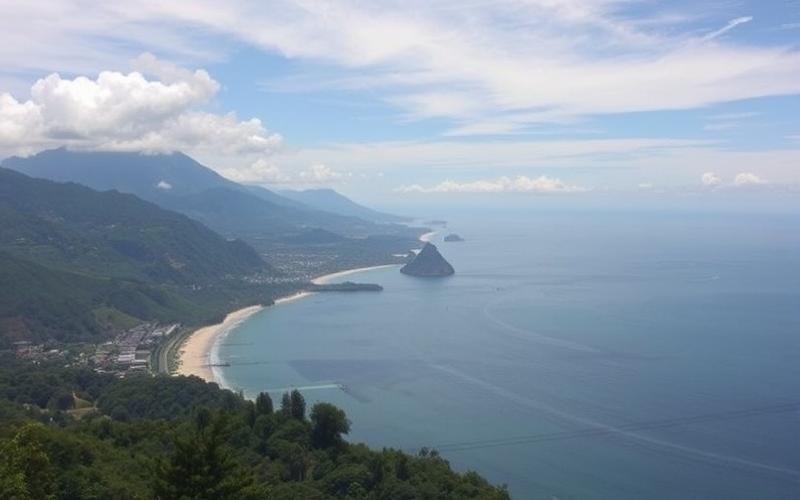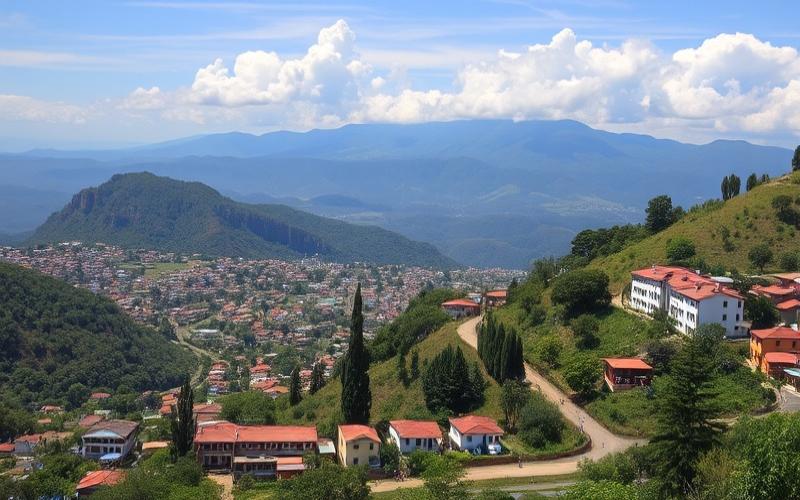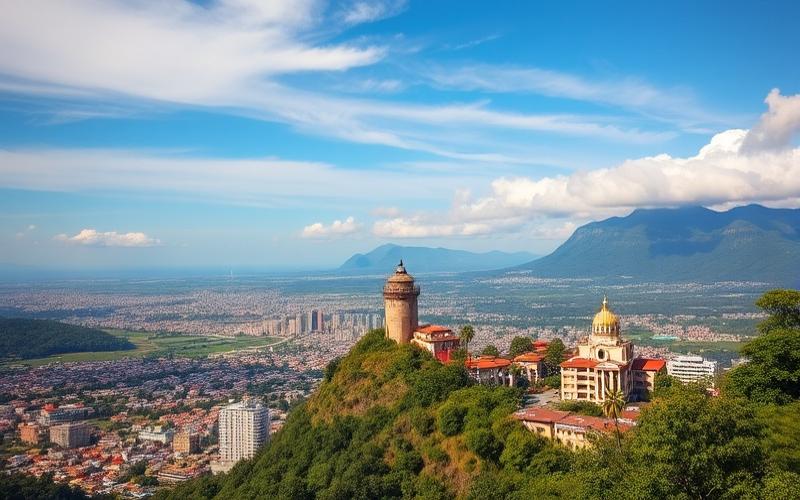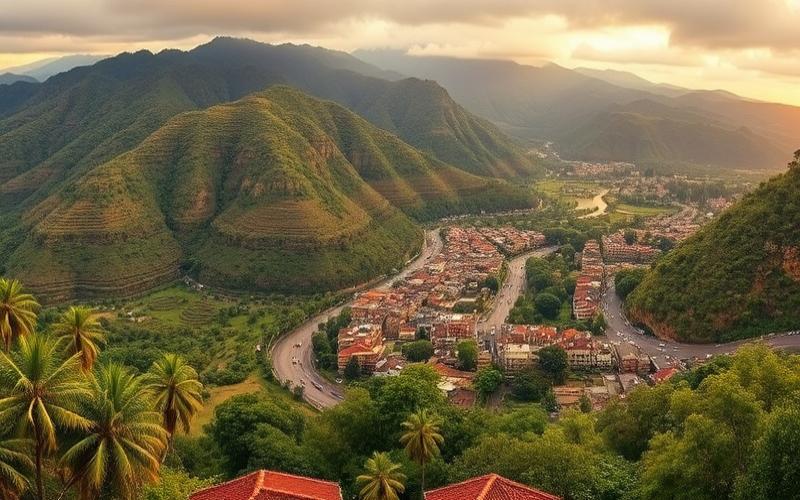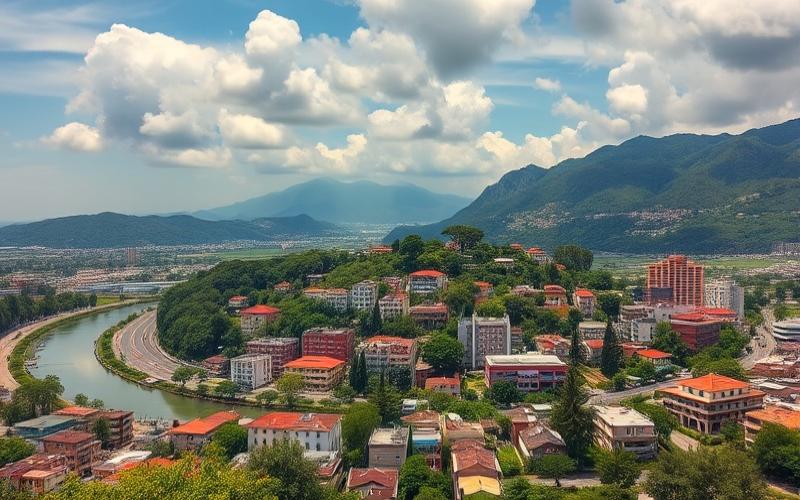
 Published on and written by Cyril Jarnias
Published on and written by Cyril Jarnias
El Salvador, a Central American country known for its stunning volcanic landscapes and golden beaches, has long suffered from a poor security reputation. However, in recent years, the country has taken significant measures to enhance safety in its cities and towns, making this destination increasingly attractive for expatriates seeking new adventures.
If you’re considering moving to this fascinating country, it’s essential to understand the local security landscape and follow some key tips to ensure a smooth expatriation. In this article, we’ll explore various strategies for navigating this dynamic country with peace of mind while enjoying its countless cultural and natural treasures.
El Salvador: A Safe Destination for Expatriates?
Government Initiatives to Improve Security
The Salvadoran government has implemented several initiatives to strengthen security, including the Zero Idleness Plan. This program aims to keep inmates occupied by assigning them community tasks, such as beach cleaning or repairing public infrastructure. Additionally, the state of emergency declared in March 2022 has enabled mass arrests and suspended certain constitutional rights, contributing to a significant drop in crime.
Safe Areas for Expatriates
Tourist and residential areas like San Salvador, La Libertad, and Suchitoto are considered safe. Expatriates report positive experiences, particularly regarding freedom of movement and enhanced security. The presence of tourist police (POLITUR) strengthens safety in these areas.
Security Concerns
Although the situation has improved, concerns remain, including armed robberies and sexual assaults in certain areas. The significant presence of weapons in the country makes assaults potentially dangerous. It’s advisable to avoid marginal areas and be cautious around political gatherings.
Measures to Ensure Safety
To ensure their safety, expatriates can take the following measures:
- Choose a good residential neighborhood: Prefer well-secured areas close to essential services.
- Join local expatriate communities: Share experiences and advice with other expatriates.
- Familiarize yourself with local laws and customs: Understand traffic safety rules and drug laws.
Statistics and Testimonials
In 2023, El Salvador recorded a historically low homicide rate, with only 154 homicides, or 2.4 per 100,000 inhabitants. Expatriates report a clear improvement in security, with the ability to move freely in most areas.
Examples of Safe Areas
| Area | Description |
|---|---|
| San Salvador | Country’s capital, well-secured with enhanced police presence. |
| La Libertad | Famous for its beaches, attracts many tourists and expatriates. |
| Suchitoto | Colonial town with a calm and safe atmosphere. |
Tips for Expatriates
- Monitor local media to stay informed about the security situation.
- Respect local laws, particularly regarding traffic safety.
- Avoid border and rural areas where security may be uncertain.
Good to know:
The Salvadoran government has intensified efforts to strengthen security, including increased police budgets and launching collaborative crime prevention programs with NGOs; neighborhoods like Santa Tecla and San Benito in San Salvador are now widely recognized for their safety, attracting many satisfied expatriates.
Essential Tips for Living Peacefully in El Salvador
Essential tips for living peacefully in El Salvador:
Neighborhoods to Prioritize for Security and Quality of Life
- San Benito (Zona Rosa): Cosmopolitan atmosphere, enhanced security, numerous high-end restaurants and hotels, ideal for expatriates and tourists.
- Colonia Escalón: Chic residential neighborhood, suitable for families and business travelers, close to amenities.
- Avoid areas like Soyapango (La Campanera), Apopa, Ilopango, and downtown at night, which remain riskier despite overall security improvements.
| Neighborhood | Main Assets | Recommended Audience |
|---|---|---|
| San Benito | Security, cultural life, hotels | Expatriates, tourists |
| Colonia Escalón | Residential, calm, shops | Families, professionals |
| Zona Rosa | Restaurants, bars, security | Young professionals, tourists |
Learning Spanish: An Essential Asset
- Memorizing basic phrases (greetings, asking for directions, shopping, politeness) greatly facilitates daily procedures.
- Understanding local customs and cultural subtleties comes through language.
- Some useful examples:
- ¿Dónde está… ? (Where is…?)
- ¿Cuánto cuesta? (How much does it cost?)
- Gracias / Por favor (Thank you / Please)
- Habla inglés? (Do you speak English?)
Integrating into the Expatriate Community
- Join groups on social media or local expatriate associations to:
- Get reliable advice on daily life.
- Share experiences and recommendations (housing, health, security).
- Find quick support when needed.
- Expatriate communities often organize meetups, facilitating integration and creating new connections.
- Waze or Google Maps: Real-time traffic, optimized routes, road conditions.
- Life360 or WhatsApp: Location sharing with loved ones for reassurance and quick response in case of problems.
- Uber: Safer alternative to traditional taxis, especially in the evening.
- Local alerts: Alert apps or dedicated Telegram/WhatsApp groups for urban security.
Managing Money Safely
- Prefer digital wallets (Apple Pay, Google Pay, or local banking apps) to limit cash handling.
- Withdraw money only from ATMs located inside shopping malls or banks, never on the street.
- Split payment methods (cards, cash, apps) and avoid keeping everything in the same place.
- Always shield your PIN and check for suspicious devices on ATMs.
Recommended Health and Safety Insurance
- Opt for international health insurance covering:
- Routine medical consultations.
- Emergencies (accidents, hospitalization).
- Medical repatriation.
- Verify specific coverage for traffic accidents and security-related incidents, more common in the region.
- Some insurers also offer 24/7 phone assistance and management of procedures in case of theft or loss of documents.
Good to know:
Prioritize secure neighborhoods like Escalón and Santa Elena, learn some Spanish basics, and connect with expatriates for practical advice. Use apps like Waze for navigation and digital wallets to manage money safely.
Key takeaways:
- Living peacefully in El Salvador depends on neighborhood choice, language preparation, integration into local and expatriate communities, use of appropriate technological tools, and subscription to robust insurance.
Enhancing Daily Security
Enhancing daily security in El Salvador
For expatriates, applying concrete measures adapted to the local context maximizes security and enables peaceful living.
List of practical tips for daily life:
- Stay vigilant in public places, particularly in tourist areas, markets, and transportation.
- Avoid displaying valuables: jewelry, electronic devices, large sums of money.
- Prefer well-lit and populated areas, especially in the evening.
- Prepare your routes in advance and inquire about risk areas from locals, your hotel, or tourist police.
- Limit nighttime travel and avoid traveling alone.
- Always carry valid identification and be prepared to pass through checkpoints.
- Follow local authorities’ guidelines and monitor local media to stay informed about security developments.
- Use only reputable transportation services: licensed taxis (pre-booked, identifiable), recognized ride-sharing apps, and international coaches.
- Avoid local or intercity public buses, often unreliable and prone to theft or harassment.
- Store important documents safely and be discreet when using ATMs.
Table: Transportation and Security
| Transportation Method | Main Recommendation |
|---|---|
| Public bus | Avoid (unreliable, frequent thefts) |
| Street taxis | Avoid, prefer those pre-booked through hotels |
| Ride-sharing (app) | Use known apps, verify identity and license plate |
| International coaches | Recommended for intercity travel |
Modern Technologies for Security:
- Install personal safety apps: geolocated alerts, emergency buttons, local risk notifications.
- Use GPS tracking devices to share your location with loved ones or your support network.
- Enable location features on your phone to facilitate assistance when needed.
Importance of Social Integration and Support Network:
- Join expatriate groups on social media or through local associations to share advice and receive help.
- Participate in events organized by French alliances, chambers of commerce, or international associations.
- Build relationships with local residents to better understand the context and benefit from reliable recommendations.
- Support from a local community or other expatriates accelerates adaptation and quick resolution of common difficulties.
Collaboration with Local Communities and Embassy:
- Stay in contact with the embassy to know official safety instructions and alerts.
- Don’t hesitate to seek help from local authorities (tourist police, municipal agents) for advice on routes and safe areas.
- In case of emergency, immediately contact the embassy or consular services for specific assistance and recommendations.
Security, support network, and technology form an essential triad for living peacefully in El Salvador.
Good to know:
Be vigilant in public places and prefer secure routes and transportation methods; use security apps and integrate socially to better understand the local context. Collaborate with local communities and the embassy to strengthen your personal security and create a reliable support network.
Successful Expatriation: Golden Rules for El Salvador
Administrative Procedures: The Foundation of Successful Settlement
Before arriving in El Salvador, administrative preparation is crucial. French nationals have an advantage: they are visa-exempt for tourist stays not exceeding 90 days and don’t pay entry tax. However, a passport valid for 6 months after your arrival remains mandatory.
For long-term settlement, there are three main paths: the Rentista visa (requiring proof of $1,500 in monthly passive income), the Pensionado visa for retirees, or residence through company formation. Once in the country, registration with the Immigration Directorate becomes imperative if your stay exceeds the tourist visa duration. You’ll need to gather your passport, registration form, proof of address, and sometimes an apostilled criminal record extract.
Obtaining the NIT number (Número de Identificación Tributaria) from the Ministry of Finance is essential for administrative procedures, employment, opening a bank account, and signing contracts. The average processing time for residence visas ranges from 2 to 4 months, with fees varying between $300 and $800 depending on visa type.
Understanding Local Culture: More Than Just a Formality
Learning Spanish before departure radically changes the expatriation experience. Those who took Spanish classes before arrival report much smoother integration and less frustrating business interactions. Beyond language, immersing yourself in Salvadoran culture by watching local films or series, reading cultural guides, and following the country’s news psychologically prepares the newcomer.
Participation in expatriate groups enriches this understanding by allowing exchanges about social codes, customs, and traditions. Several expatriates acknowledge that respecting community life and traditional festivals significantly facilitates acceptance by local populations. Respect for local culinary habits and curiosity about national traditions constitute simple yet powerful gestures of cultural integration.
Choosing the Right Neighborhood: Security and Quality of Life
Selecting your place of residence deserves particular attention. It’s strongly recommended to use temporary accommodation upon arrival (Airbnb, hotels, serviced apartments) to physically explore neighborhoods before signing a lease. This approach allows verification of proximity to essential amenities: transportation, schools, shops, and especially the neighborhood’s general atmosphere.
Consulting specialized expatriation websites, forums, and expatriate social media provides invaluable information about neighborhood safety and pricing. Engaging a trusted local real estate agent helps avoid potential scams and understand each area’s specifics. Several expatriates emphasize the importance of visiting properties in person and speaking with established residents to obtain reliable neighborhood assessments.
Expatriate Networks: Your Safety Net
The presence of active expatriate communities in El Salvador constitutes a major asset. Dedicated Facebook groups, online forums, and physical meetups offer precious support during the first months. These networks share practical advice: the best plumbers, recommended restaurants, pitfalls to avoid, and especially the emotional experience of life change.
Several expatriates who successfully settled testify to the crucial role of these communities in reducing loneliness and accelerating integration. These groups often become lasting friends, transforming expatriation from an isolating experience into a collective adventure. Specialized organizations and English-speaking lawyers like Rodrigo, mentioned in several guides, also facilitate complex administrative procedures.
Complying with Local Laws: Rules of Permanence
Physical presence in El Salvador is strictly regulated for residents. You must spend at least 8 months per year there and not be absent for more than 3 consecutive months, under penalty of losing your residence permit upon renewal. This rule also applies once permanent residence is obtained, although conditions gradually become more flexible.
For Salvadoran nationality, you must reside in the country for 5 years. After obtaining permanent residence, you only need to present yourself once every two years to maintain it.
Regarding property ownership, foreigners enjoy the same rights as locals to purchase properties, except in border or coastal areas which require special authorization. Due diligence is absolutely imperative: verify municipal compliance, absence of debts or disputes on the property with the National Registry Center (CNR).
A considerable tax advantage lies in the territorial taxation system: you won’t be taxed on income generated outside El Salvador. However, local banking assistance becomes necessary to open an account. You’ll present your passport, NIT number, valid residence permit, and proof of address (rental contract or utility bill).
Health Insurance: Essential Protection
With the Salvadoran public system often proving insufficient for expatriates, it’s highly advised to subscribe to private international or local health insurance. Comparing offers to include routine care, hospitalizations, medical evacuations, and ideally repatriation coverage preserves your peace of mind.
| Aspect | Description |
|---|---|
| Tourist visa | 90 days for French nationals, no entry tax |
| Residence processing time | 2 to 4 months on average |
| Administrative fees | $300 to $800 USD depending on visa type |
| Required presence | 8 months/year minimum, max 3 months consecutive absence |
| Mandatory NIT | For employment, banking, contracts |
| Health insurance | Recommended: public system insufficient |
Successful settlement in El Salvador relies on meticulous preparation, sincere cultural openness, judicious choice of residence location, involvement in local and expatriate communities, and strict understanding of legal obligations. Those who followed these fundamental principles report harmonious transitions and lasting satisfaction in their new Salvadoran life.
Good to know:
For successful expatriation in El Salvador, prioritize neighborhoods like Escalón or Santa Elena for greater security, and join expatriate networks to benefit from expert advice; thus, learning Spanish will accelerate your integration, as Marie, an expatriate for two years, recounts, emphasizing the importance of understanding cultural nuances while respecting local laws.
Disclaimer: The information provided on this website is for informational purposes only and does not constitute financial, legal, or professional advice. We encourage you to consult qualified experts before making any investment, real estate, or expatriation decisions. Although we strive to maintain up-to-date and accurate information, we do not guarantee the completeness, accuracy, or timeliness of the proposed content. As investment and expatriation involve risks, we disclaim any liability for potential losses or damages arising from the use of this site. Your use of this site confirms your acceptance of these terms and your understanding of the associated risks.


